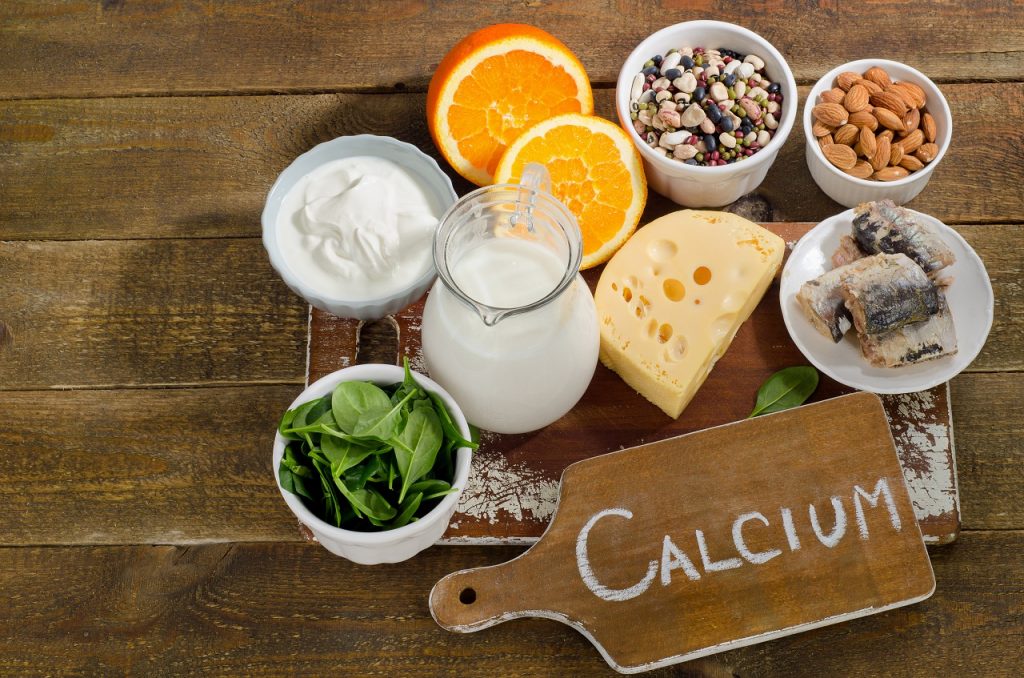 Calcium, needed for healthy and strong bones and teeth, also helps in alleviating normal blood clotting, supports proper functioning of muscles and nerves. Most calcium is found in the bones of our body. If sufficient calcium is not included in the diet, then the body starts extracting calcium from bones making them weak and brittle and putting one at risk of Osteoporosis. Calcium requirements differ for each age group and gender. The most being required by the 50+ age group people as the body removes old bones faster than it rebuilds new ones. Let’s look into some of the best sources of calcium rich foods, including which will help us meet the daily recommended requirements for the mineral.
Calcium, needed for healthy and strong bones and teeth, also helps in alleviating normal blood clotting, supports proper functioning of muscles and nerves. Most calcium is found in the bones of our body. If sufficient calcium is not included in the diet, then the body starts extracting calcium from bones making them weak and brittle and putting one at risk of Osteoporosis. Calcium requirements differ for each age group and gender. The most being required by the 50+ age group people as the body removes old bones faster than it rebuilds new ones. Let’s look into some of the best sources of calcium rich foods, including which will help us meet the daily recommended requirements for the mineral.
Best Sources of Calcium
- Milk and Milk Products: like curds, yogurt, buttermilk, paneer (Indian cottage cheese), ghee, are all very good sources of calcium. Including milk and milk products regularly in the diet helps us meet 12-30% of daily calcium requirement with 1 glass of milk helping us meet 12% of daily requirements of calcium. But choosing the right type of milk and milk products helps us reach the goal of maintaining or reducing or increasing weight at the same time.
- Leafy Greens: like spinach, kale, rhubarb and amaranth greens all have a good amount of calcium in them and can easily be incorporated in a diet. People following a vegan diet find it very easy to incorporate leafy vegetables and can complete their daily recommended dosage for calcium. People with kidney disease should follow restrictions which include these leafy greens as they also have large amounts of oxalates which are a reason for kidney stones – including good amounts of liquids helps minimize the oxalates effects on the body.
- Nuts: like almonds, walnuts, hazelnuts and dried figs have good amounts of calcium with almonds topping the list with 75 mg of calcium per 30 gms of almonds included. Nuts can be easily incorporated in snacks which are a healthy swap for all the unhealthy cravings in between meals. Incorporating a large quantity of nuts can also cause weight gain as they are very good sources of fats. Ensure that you control the portion size of nuts included.
- Seeds: like sesame seeds, sunflower seeds, chia seeds and poppy seeds are rich in calcium and can be easily included in any of the Indian meal preparations which will add to the nutrient content of the dish and makes it more appealing as well. What is more interesting is that a very small quantity of the seeds, around 1-2 tsp in a day, will give you 80-150 gms of calcium.
- Vegetables: are rated quite low in terms of calcium but vegetables such as broccoli, sweet potato, lady finger and beans are good sources of calcium, between 70g-160g and are easily available all through the year and can be included in diet as salads, sabji (dry vegetable preparation) or mid meal snacks as well.
- Sea foods: Sea animals like tuna, sardines, salmon provide us many of the micronutrients like potassium, selenium and magnesium along with calcium. These fishes have high levels of calcium as they have edible bones. They are also a good source of protein and Omega-3 fatty acids. But they also have high amounts of mercury so precaution must be taken to clean the fish well before using it for cooking
- Fruits: Though fruits are not very good sources of calcium, fruits like grapefruit, kiwi and orange help us get around 30-50mg of calcium per serving. Including fruits in between meals help in better absorption of nutrients from them.
We hope these best sources of calcium help you! Do leave your thoughts in the comments below! For more tips on nutrition, check out Healthy Reads or speak to a GOQii Coach by subscribing for Personalised Health Coaching here.
#BeTheForce




Leave a Reply